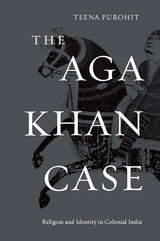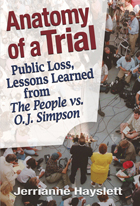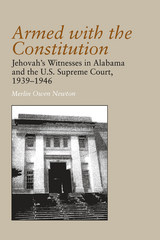6 start with A start with A


An overwhelmingly Arab-centric perspective dominates the West’s understanding of Islam and leads to a view of this religion as exclusively Middle Eastern and monolithic. Teena Purohit presses for a reorientation that would conceptualize Islam instead as a heterogeneous religion that has found a variety of expressions in local contexts throughout history. The story she tells of an Ismaili community in colonial India illustrates how much more complex Muslim identity is, and always has been, than the media would have us believe.
The Aga Khan Case focuses on a nineteenth-century court case in Bombay that influenced how religious identity was defined in India and subsequently the British Empire. The case arose when a group of Indians known as the Khojas refused to pay tithes to the Aga Khan, a Persian nobleman and hereditary spiritual leader of the Ismailis. The Khojas abided by both Hindu and Muslim customs and did not identify with a single religion prior to the court’s ruling in 1866, when the judge declared them to be converts to Ismaili Islam beholden to the Aga Khan.
In her analysis of the ginans, the religious texts of the Khojas that formed the basis of the judge’s decision, Purohit reveals that the religious practices they describe are not derivations of a Middle Eastern Islam but manifestations of a local vernacular one. Purohit suggests that only when we understand Islam as inseparable from the specific cultural milieus in which it flourishes do we fully grasp the meaning of this global religion.


Agent Orange on Trial is a riveting legal drama with all the suspense of a courtroom thriller. One of the Vietnam War’s farthest reaching legacies was the Agent Orange case. In this unprecedented personal injury class action, veterans charge that a valuable herbicide, indiscriminately sprayed on the luxuriant Vietnam jungle a generation ago, has now caused cancers, birth defects, and other devastating health problems. Peter Schuck brilliantly recounts the gigantic confrontation between two million ex-soldiers, the chemical industry, and the federal government. From the first stirrings of the lawyers in 1978 to the court plan in 1985 for distributing a record $200 million settlement, the case, which is now on appeal, has extended the frontiers of our legal system in all directions.
In a book that is as much about innovative ways to look at the law as it is about the social problems arising from modern science, Schuck restages a sprawling, complex drama. The players include dedicated but quarrelsome veterans, a crusading litigator, class action organizers, flamboyant trial lawyers, astute court negotiators, and two federal judges with strikingly different judicial styles. High idealism, self-promotion, Byzantine legal strategies, and judicial creativity combine in a fascinating portrait of a human struggle for justice through law.
The Agent Orange case is the most perplexing and revealing example until now of a new legal genre: the mass toxic tort. Such cases, because of their scale, cost, geographical and temporal dispersion, and causal uncertainty, present extraordinarily difficult challenges to our legal system. They demand new approaches to procedure, evidence, and the definition of substantive legal rights and obligations, as well as new roles for judges, juries, and regulatory agencies. Schuck argues that our legal system must be redesigned if it is to deal effectively with the increasing number of chemical disasters such as the Bhopal accident, ionizing radiation, asbestos, DES, and seepage of toxic wastes. He imaginatively reveals the clash between our desire for simple justice and the technical demands of a complex legal system.


Armed with the Constitution stresses the courage of a black man, Rosco Jones, and a white woman, Grace Marsh, who dared to challenge the status quo in Alabama in the early 1940s. These two Jehovah’s Witnesses helped to lay a foundation for testing the constitutionality of state and local laws, establishing precedents that the Civil Rights movement, the feminist movement, and similar forces could follow. Newton has prepared a finely woven tale of oral, legal, and social history that opens a window on the world of the Jehovah’s Witnesses in Alabama.
More than a legal study, this book is also a dramatic history of two powerful personalities whose total commitment to their faith enabled them to carry the Jehovah’s Witnesses’ battle from rural Alabama to the halls of the U.S. Supreme Court.
READERS
Browse our collection.
PUBLISHERS
See BiblioVault's publisher services.
STUDENT SERVICES
Files for college accessibility offices.
UChicago Accessibility Resources
home | accessibility | search | about | contact us
BiblioVault ® 2001 - 2024
The University of Chicago Press









